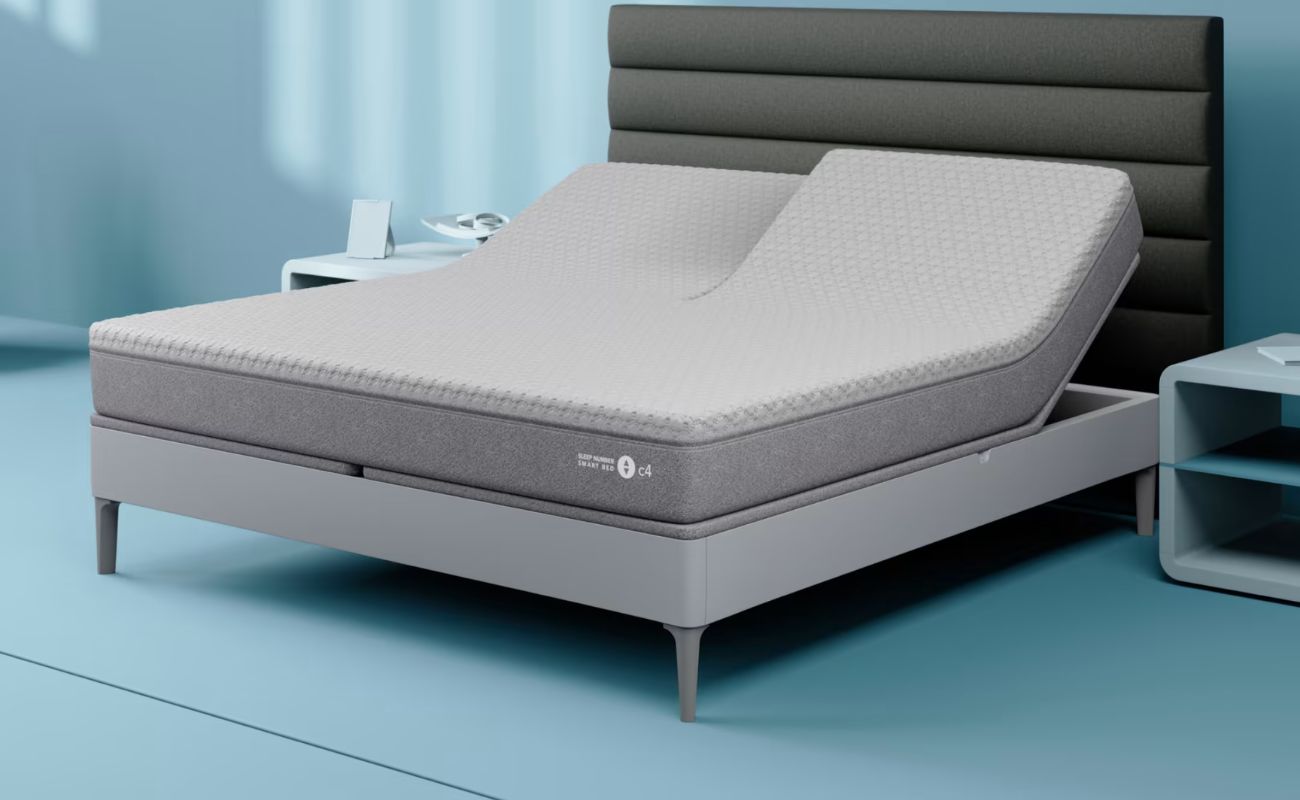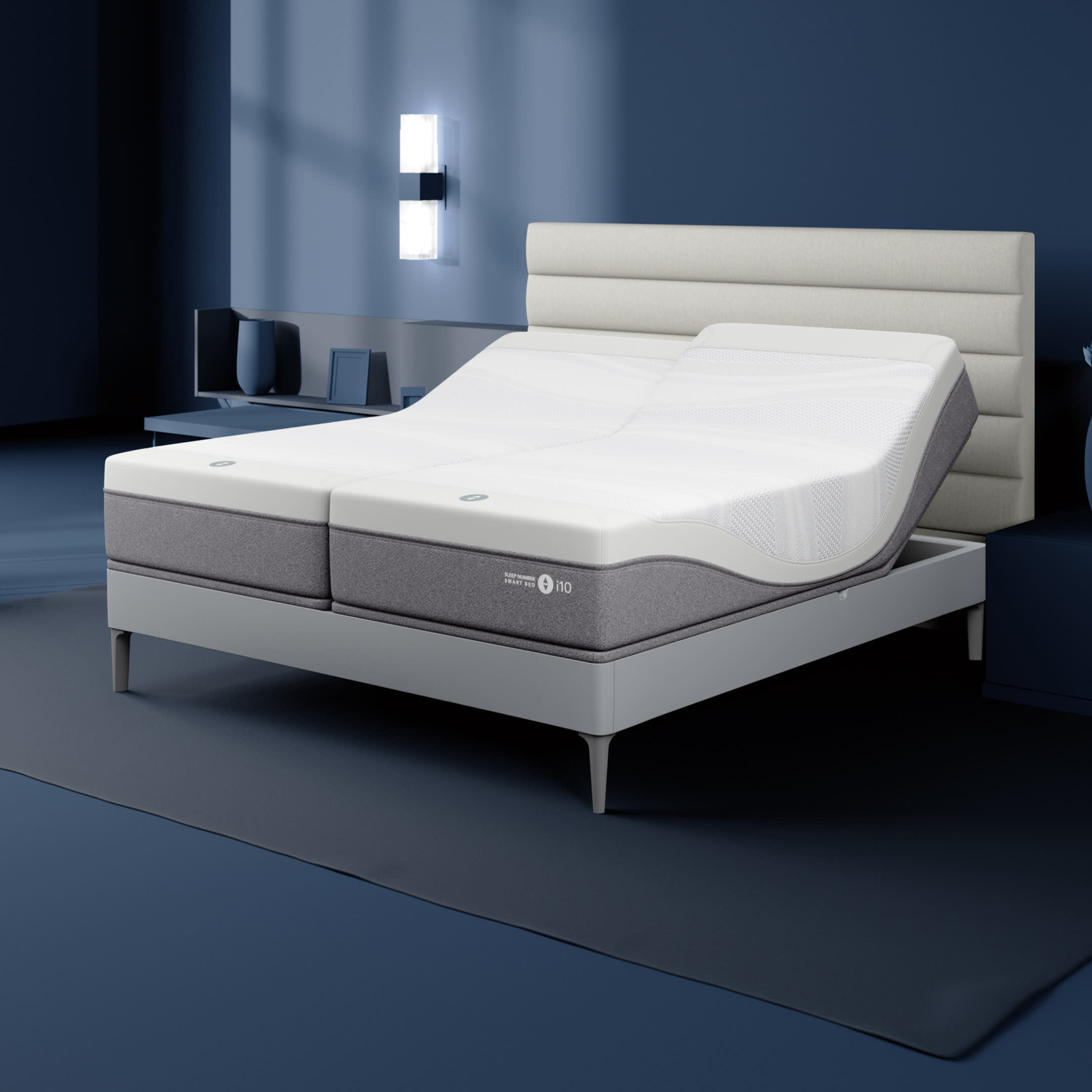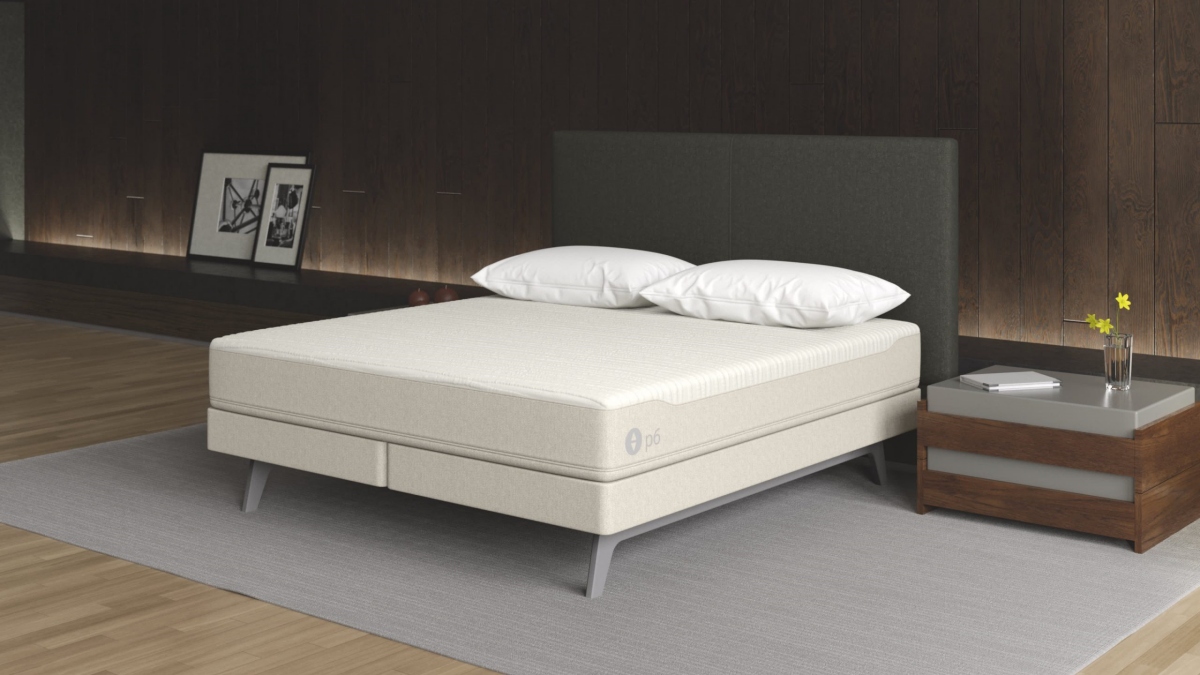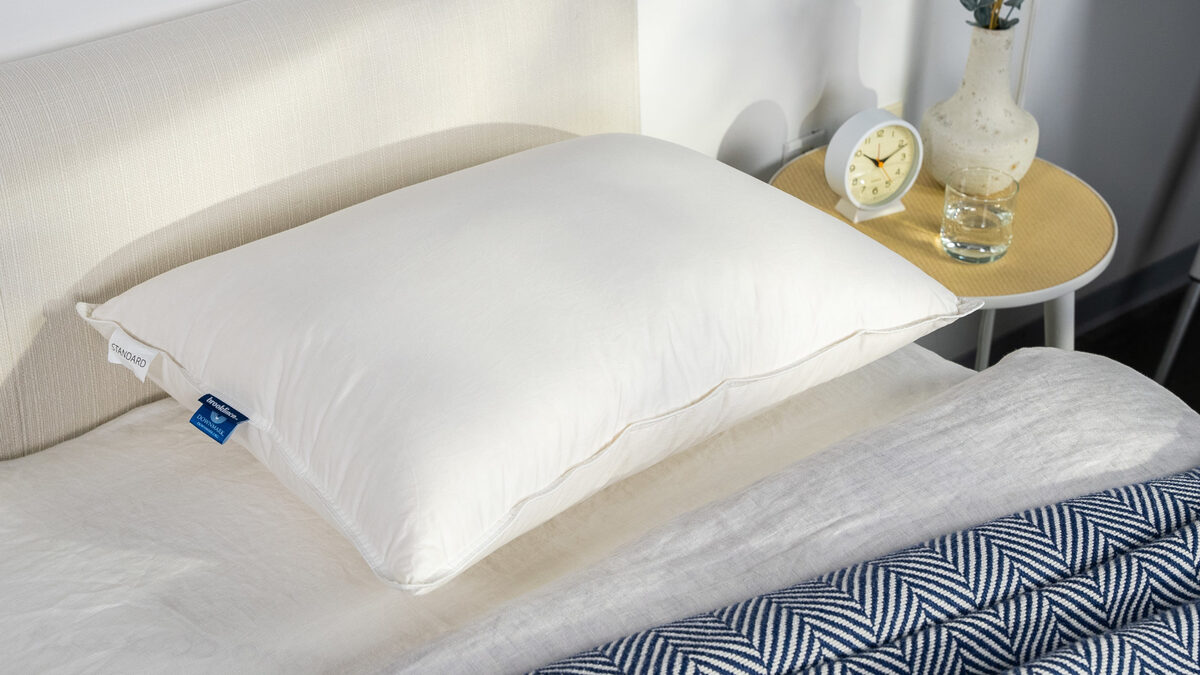

Articles
What Is The Ideal Number Of Pillows For Sleep
Modified: January 19, 2024
Discover the ideal number of pillows to sleep on and improve your quality of sleep with our informative articles on pillow selections and recommendations.
(Many of the links in this article redirect to a specific reviewed product. Your purchase of these products through affiliate links helps to generate commission for Storables.com, at no extra cost. Learn more)
Introduction
When it comes to getting a good night’s sleep, the number of pillows you choose to sleep on can make a big difference. It may seem like a small detail, but it can have a significant impact on your overall comfort and sleep quality.
Choosing the right number of pillows is not a one-size-fits-all solution. It depends on various factors, such as your preferred sleep position, personal preference, and any specific sleep issues you may have. Whether you prefer to sleep with multiple pillows or just a single one, understanding the pros and cons can help you make an informed decision.
In this article, we will explore the importance of choosing the right number of pillows, discuss the factors to consider when deciding how many pillows to sleep on, and examine the pros and cons of both sleeping with multiple pillows and sleeping with a single pillow. We will also provide recommendations for the ideal number of pillows based on different sleep positions and offer tips for finding the right pillow(s) for your specific needs.
Sleep is an essential aspect of our overall health and well-being. It restores our body and mind, enhances cognitive function, and promotes physical and emotional wellness. Therefore, finding the right sleep setup, including the appropriate number of pillows, is crucial for achieving optimal sleep.
So, whether you are a back sleeper, a side sleeper, or a stomach sleeper, join us as we explore the world of pillows and discover how to create the perfect sleep environment for a restful night’s sleep.
Key Takeaways:
- The number of pillows you sleep on impacts your comfort and sleep quality. Consider your sleep position, personal preference, and any sleep issues to find the ideal pillow setup for a restful night’s sleep.
- Experiment with different pillow combinations to find the right balance between comfort and support. Whether you choose multiple pillows or a single one, prioritize your comfort and alignment for a nurturing sleep environment.
Read more: What Is A Sleep Number Bed
Importance of Choosing the Right Number of Pillows
The number of pillows you sleep on can have a significant impact on your sleep quality and overall comfort. Choosing the right number of pillows is important for several reasons:
- Proper Alignment: Sleeping with the appropriate number of pillows helps maintain proper alignment of your spine, neck, and head. When your body is properly aligned during sleep, it reduces the risk of waking up with aches and pains in these areas. It also helps prevent issues like muscle tension, stiffness, and even headaches.
- Comfort and Support: Pillows provide comfort and support to different areas of your body while you sleep. They help cushion pressure points, such as the shoulders, hips, and knees, ensuring that you wake up feeling refreshed and rejuvenated. Having the right number of pillows can distribute weight evenly and alleviate any discomfort caused by an improper sleep position.
- Relief from Sleep Issues: Some sleep issues, such as snoring, acid reflux, or sleep apnea, can be mitigated by using the right number of pillows. For example, elevating your head with an additional pillow can help reduce snoring and ease the symptoms of acid reflux. Understanding your sleep issues and choosing the proper pillow setup can greatly improve your sleep quality and overall well-being.
By selecting the right number of pillows, you can enhance the overall sleep experience and promote a healthier and more restorative sleep. It is essential to consider your individual needs and preferences to achieve optimal comfort during the night.
Now that we understand the importance of choosing the right number of pillows, let’s explore some key factors to consider when deciding how many pillows to sleep on.
Factors to Consider When Deciding How Many Pillows to Sleep On
When it comes to determining the number of pillows to sleep on, there are several factors that you should consider:
- Sleep Position: Your preferred sleep position plays a crucial role in determining the number of pillows you need. Different sleep positions require varying levels of support and alignment. For example, side sleepers often benefit from using a thicker pillow to maintain proper spinal alignment, while back sleepers may find comfort with a medium-firm pillow to support the natural curve of their neck.
- Personal Preference: Your personal preference is a significant factor in choosing the number of pillows. Some individuals prefer a minimalistic approach and feel comfortable with just one pillow, while others enjoy the added support and cushioning of multiple pillows. Consider what makes you feel the most comfortable and supported during sleep.
- Sleep Issues: If you have specific sleep issues or conditions, such as sleep apnea, acid reflux, or snoring, you may need to adjust the number of pillows you use. For example, individuals with acid reflux may benefit from sleeping with an elevated upper body, which can be achieved with an extra pillow under the upper back.
- Body Size and Shape: Your body size and shape can also influence the number of pillows you require for optimal comfort and support. Larger individuals may find that they need more pillows to distribute their weight evenly and avoid discomfort, while smaller individuals may prefer a minimal pillow setup.
- Pillow Type: The type of pillow you choose can affect the number you need. Different pillow types, such as memory foam, down, or latex, offer varying levels of support and thickness. Experimenting with different pillow types can help you determine the number and combination that works best for you.
It’s essential to keep these factors in mind while deciding how many pillows to sleep on. Consider your unique needs, preferences, and any specific sleep issues you may have when determining the ideal pillow setup.
Now that we understand the factors to consider, let’s explore the pros and cons of sleeping with multiple pillows versus sleeping with a single pillow.
Pros and Cons of Sleeping with Multiple Pillows
Sleeping with multiple pillows can offer a range of benefits and drawbacks. Let’s take a look at the pros and cons:
- Enhanced Support: One of the main advantages of sleeping with multiple pillows is the ability to customize support for different areas of your body. By using different pillows under your head, neck, or knees, you can achieve optimal alignment and reduce pressure points, leading to improved comfort and reduced pain.
- Reduced Snoring and Acid Reflux: If you suffer from snoring or acid reflux, sleeping with an elevated upper body can help alleviate symptoms. Using an extra pillow for elevation can open up your airway or prevent stomach acid from flowing back into your esophagus, reducing snoring and acid reflux at night.
- Extra Cushioning: Multiple pillows can provide additional cushioning and comfort, especially for those who prefer a softer sleep surface. They can help create a cozy, nest-like feeling that enhances relaxation and promotes better sleep quality.
- Potential Discomfort: One of the drawbacks of using multiple pillows is that they can lead to an unnatural sleep position, causing discomfort and strain on the neck, shoulders, and back. Improper alignment and excessive head elevation can result in stiffness, muscle tension, and even headaches.
- Excessive Heat: Sleeping with multiple pillows can create a buildup of heat, especially if they are made of materials that retain heat. This can lead to night sweats or disrupted sleep for those who are heat-sensitive.
- Greater Cost and Maintenance: Having multiple pillows can be costly, as each additional pillow adds to the overall expense. Additionally, maintaining and cleaning multiple pillows can be more time-consuming compared to having just one pillow.
It’s important to weigh the pros and cons of sleeping with multiple pillows and consider your individual needs and preferences. Experimenting with different pillow combinations can help you find the right balance between comfort and support.
Now, let’s explore the pros and cons of sleeping with a single pillow.
The ideal number of pillows to sleep on varies for each person, but generally, one pillow that supports the head and neck in a neutral position is sufficient for most people. Additional pillows can be used for comfort or to support specific areas like the knees or back.
Pros and Cons of Sleeping with a Single Pillow
Sleeping with a single pillow has both advantages and disadvantages. Let’s examine the pros and cons:
- Simplicity and Convenience: Using a single pillow is straightforward and convenient. You don’t have to worry about arranging multiple pillows or adjusting their positions, making it easier to get in and out of bed quickly.
- Minimalist Approach: For those who prefer a minimalistic sleep setup, sleeping with just one pillow can create a clean and clutter-free bed environment. It offers a simplistic and uncluttered aesthetic that is easy to maintain.
- Improved Alignment: With a single pillow, it is easier to maintain proper spinal alignment during sleep. This can help alleviate pressure points, reduce strain on the neck and back, and promote better sleep posture.
- Reduced Risk of Over-Elevation: Sleeping with just one pillow reduces the risk of over-elevating the head, which can lead to discomfort and unnatural sleep positions. It helps maintain a more natural sleeping angle, reducing the likelihood of waking up with stiffness or headaches.
- Limited Cushioning: The main drawback of sleeping with a single pillow is the limited cushioning it offers. Depending on your sleep position and personal preference, a single pillow may not provide enough support for your head, neck, and shoulders, leading to discomfort or pain.
- Less Versatility: A single pillow may not provide the versatility and customization options that multiple pillows offer. For example, if you need to elevate your upper body due to snoring or acid reflux, a single pillow may not provide sufficient height for optimal relief.
It’s important to consider the pros and cons of sleeping with a single pillow and assess whether it meets your specific sleep needs. If you find that a single pillow does not offer the desired level of comfort or support, you may need to explore other options, such as using additional pillows or trying different pillow types.
Now, let’s delve into the recommended number of pillows based on different sleep positions.
Read more: How To Inflate A Sleep Number Bed
Recommended Number of Pillows Based on Sleep Position
The ideal number of pillows to sleep on can vary depending on your preferred sleep position. Here are the recommended pillow setups for different sleep positions:
- Back Sleepers: If you sleep on your back, it is generally recommended to use one pillow. Choose a medium-firm pillow that provides adequate support to maintain the natural curve of your neck and spine. Avoid using multiple pillows that can strain your neck or elevate your head too much.
- Side Sleepers: Side sleepers typically benefit from using two pillows. Place one pillow under your head to support your neck and align your spine. Place a second pillow between your knees to keep your hips properly aligned and alleviate pressure on your lower back.
- Stomach Sleepers: For those who sleep on their stomachs, it is generally recommended to sleep with just one pillow or no pillow at all. Using a thin pillow or no pillow helps prevent excessive extension of the neck and reduces the risk of strain or discomfort.
- Combination Sleepers: If you change sleep positions throughout the night, it’s important to find a pillow setup that accommodates all positions. Consider using a pillow that offers adjustable loft or different firmness levels to cater to the needs of each sleep position.
Remember, these are general guidelines, and individual preferences may vary. It’s essential to listen to your body and experiment to find the pillow setup that provides the most comfort and support for your specific sleep position.
Now, let’s explore some tips for finding the right pillow(s) for your sleep needs.
Tips for Finding the Right Pillow(s) for Your Sleep Needs
Finding the right pillow(s) for your sleep needs can greatly enhance your comfort and sleep quality. Here are some tips to help you in your search:
- Consider your Sleep Position: Determine your primary sleep position and choose a pillow that aligns with its specific requirements. Back sleepers may benefit from a medium-firm pillow, side sleepers can opt for a thicker, firmer pillow, and stomach sleepers may prefer a softer, flatter pillow.
- Assess your Comfort Preferences: Consider your personal preferences when it comes to pillow materials and firmness. Some individuals prefer memory foam for its contouring abilities, while others may opt for down for its softness. Test different pillows to find the one that feels most comfortable to you.
- Support your Body Size and Shape: Take into account your body size and shape when choosing a pillow. Larger individuals may need firmer, higher loft pillows to adequately support their head and neck, while smaller individuals may find medium or low loft pillows more suitable.
- Consider any Sleep Issues or Conditions: If you have specific sleep issues or conditions, such as neck pain, snoring, or allergies, look for pillows that address these concerns. For example, memory foam pillows can provide excellent neck support, while hypoallergenic pillows can help reduce allergy symptoms.
- Try Before You Buy: Whenever possible, try out pillows before purchasing them. Visit a store that allows you to test different pillow options, or take advantage of trial periods offered by online retailers. This way, you can assess the comfort and support of the pillow firsthand.
- Invest in Quality: While it may be tempting to opt for inexpensive pillows, investing in high-quality pillows can make a significant difference in comfort and durability. Quality pillows tend to maintain their shape and support for a longer period, giving you better value in the long run.
- Replace your Pillows Regularly: Pillows can accumulate dust, allergens, and lose their shape over time. Replace your pillows every 1-2 years or when they no longer provide adequate support and comfort. Regularly replacing your pillows ensures you have a clean and supportive sleep surface.
Remember, finding the right pillow(s) may involve some trial and error. Don’t be afraid to explore different options until you find the perfect fit for your sleep needs.
Now, let’s conclude our discussion on choosing the right number of pillows for a restful night’s sleep.
Conclusion
Choosing the right number of pillows to sleep on is a crucial aspect of creating a comfortable and supportive sleep environment. It’s important to consider your sleep position, personal preferences, and any specific sleep issues you may have when determining the ideal number of pillows.
Whether you decide to sleep with multiple pillows or opt for a single pillow, there are pros and cons to each approach. Sleeping with multiple pillows allows for enhanced support, reduced snoring, and extra cushioning. However, it can also lead to potential discomfort and excessive heat. On the other hand, sleeping with a single pillow offers simplicity and improved alignment, but may lack sufficient support and versatility.
For back sleepers, a single pillow is generally recommended. Side sleepers benefit from using two pillows: one for the head and one for the knees. Stomach sleepers are advised to sleep with either a single pillow or none at all. Combination sleepers should consider adjustable loft pillows that cater to different sleep positions.
When searching for the right pillow(s) for your sleep needs, assess factors such as sleep position, comfort preferences, body size and shape, and any specific sleep issues or conditions you may have. Trying out pillows, investing in quality, and regularly replacing them are important steps in ensuring optimal comfort and support.
Remember, everyone is unique, and what works for one person may not work for another. It may take some experimentation and adjustments to find the perfect pillow setup that leads to a restful night’s sleep.
So, whether you decide to sleep with multiple pillows or opt for a single pillow, prioritize your comfort and alignment. By finding the ideal number and type of pillows, you can create a sleep environment that nurtures and supports your body, allowing you to wake up refreshed and ready to tackle the day.
Frequently Asked Questions about What Is The Ideal Number Of Pillows For Sleep
Was this page helpful?
At Storables.com, we guarantee accurate and reliable information. Our content, validated by Expert Board Contributors, is crafted following stringent Editorial Policies. We're committed to providing you with well-researched, expert-backed insights for all your informational needs.















0 thoughts on “What Is The Ideal Number Of Pillows For Sleep”